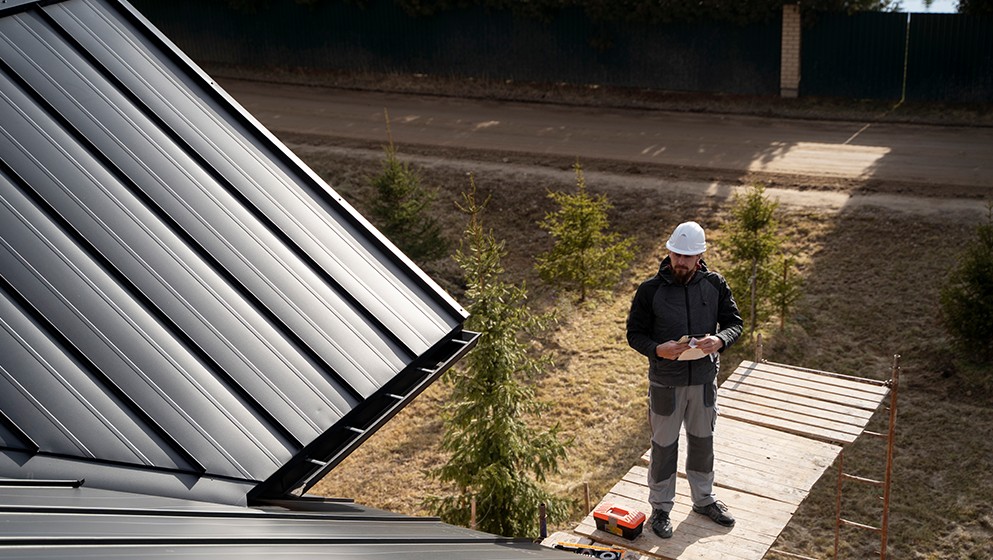The decision to purchase a new home is a significant investment, and one that should not be taken lightly. In order to ensure that the investment is a wise one, it is crucial for new home buyers to thoroughly assess the condition of the property before finalizing the purchase. This can be achieved through a comprehensive home inspection, which aims to identify any potential structural issues, discover hidden defects, evaluate safety hazards, and ultimately provide the buyer with peace of mind. By opting for a full home inspection, buyers can gain valuable insights into the overall condition of the property, allowing them to make informed decisions and potentially negotiate a better deal. This article will explore the various reasons why new home buyers should always prioritize a full home inspection, highlighting the benefits and advantages it offers in terms of protecting their investment and ensuring a safe and sound living environment.
Identify Potential Structural Issues
Potential structural issues can be identified through a comprehensive home inspection, which is crucial for new home buyers to ensure the long-term stability and safety of their investment. One of the primary benefits of a full home inspection is the ability to identify foundation problems. The foundation of a home is its fundamental support system, and any issues with it can lead to serious structural problems. A thorough inspection can identify signs of foundation issues such as cracks, uneven floors, or doors and windows that don’t close properly. Identifying these problems early on can save home buyers from expensive repairs in the future.
In addition to foundation issues, a comprehensive home inspection can also assess plumbing problems. Faulty plumbing can lead to leaks, water damage, and mold growth, which can compromise the integrity of a home’s structure. During the inspection, a qualified inspector will examine the plumbing system for any signs of leaks, corrosion, or improper installation. They will also check the water pressure and drainage to ensure everything is functioning properly. By identifying plumbing issues, home buyers can address them before they escalate into more significant problems.
By conducting a full home inspection, new home buyers can have peace of mind knowing that potential structural issues, such as foundation problems and plumbing issues, will be identified before they become major concerns. This allows them to make informed decisions about their investment and negotiate repairs or price adjustments with the seller if necessary. In the subsequent section, we will explore how a comprehensive inspection can also help home buyers discover hidden defects that may not be immediately apparent.
Discover Hidden Defects
When conducting a full home inspection, it is important to uncover any potential electrical wiring and HVAC system issues. These can include outdated wiring, faulty connections, or improperly functioning HVAC units. Additionally, a thorough inspection can also detect hidden defects such as mold, pest infestation, and water damage, which may not be immediately visible to the naked eye. By identifying these issues early on, potential home buyers can make informed decisions and negotiate repairs or price adjustments with the seller.
Uncover Electrical Wiring and HVAC System Issues
Uncovering electrical wiring and HVAC system issues during a full home inspection provides crucial insights into the overall safety and functionality of the property, allowing new home buyers to make informed decisions. Ensuring electrical safety is paramount as faulty wiring can lead to fires and electrocution hazards. An experienced home inspector can identify outdated or inadequate wiring, improper installations, and potential fire risks. In addition, the HVAC system plays a vital role in maintaining indoor air quality and comfort. A thorough inspection can reveal issues such as malfunctioning components, inadequate maintenance, or outdated systems that may require costly repairs or replacements. By addressing these issues upfront, new home buyers can avoid unexpected expenses and ensure the safety and efficiency of their new property. Transitioning into the subsequent section, a comprehensive inspection also helps detect mold, pest, and water damage.
Detect Mold, Pest, and Water Damage
Mold, pest, and water damage can be identified through a comprehensive inspection, allowing for a thorough assessment of the property’s structural integrity and potential health hazards. Mold growth can lead to respiratory problems and allergies, while pests like termites can cause extensive damage to the property’s foundation. Additionally, water damage can weaken the structure and promote the growth of mold and pests. A professional home inspection can detect these issues early on, enabling home buyers to address them before they become more severe and costly to repair. Prevention methods such as moisture control, regular maintenance, and proper ventilation can be implemented to mitigate these risks. By identifying and addressing potential mold, pest, and water damage, home buyers can ensure the safety and well-being of their investment. This leads to the subsequent section about ‘evaluate safety hazards,’ which involves assessing other potential risks that may compromise the property’s safety.
Evaluate Safety Hazards
One crucial reason for new home buyers to opt for a full home inspection is to thoroughly assess potential safety hazards. By conducting a comprehensive evaluation, buyers can identify any existing safety risks and prioritize repairs to ensure the safety of their future living space. Safety hazards can encompass a wide range of issues, including electrical problems, structural weaknesses, and fire hazards.
During a full home inspection, trained professionals thoroughly examine the electrical system to identify any faulty wiring, outdated components, or improper installations that may pose a safety threat. Additionally, they assess the overall structural integrity of the property, paying close attention to foundations, roofs, and walls, to detect any potential weaknesses that could result in accidents or collapses. Furthermore, inspectors inspect the property for fire hazards, such as malfunctioning smoke detectors or flammable materials stored improperly.
By evaluating potential risks, home buyers can make informed decisions about the necessary repairs and improvements needed to ensure the safety of their new home. The inspection report provides a detailed assessment of each safety hazard, allowing buyers to prioritize and plan for the required repairs in a systematic manner. This not only helps in budgeting for the necessary repairs but also in negotiating a better deal with the sellers, taking into account the cost of remedying these safety concerns.
Thoroughly assessing potential safety hazards through a full home inspection is essential for new home buyers. By identifying and addressing these risks, buyers can create a safe living environment for themselves and their families. Furthermore, armed with a detailed inspection report, buyers can negotiate a better deal that accounts for the necessary repairs, ultimately ensuring a sound investment in their new home.
Negotiate a Better Deal
Evaluating potential safety hazards through a comprehensive home inspection allows for a more informed negotiation process, taking into account the cost of necessary repairs and improvements. When buyers are aware of the safety hazards present in a home, they can employ effective negotiation strategies to secure a better deal. By identifying these hazards, buyers can leverage them as bargaining points to negotiate a lower purchase price or request that the seller make the necessary repairs before finalizing the sale.
Financial considerations play a crucial role in the negotiation process. By having a thorough understanding of the safety hazards and their associated costs, buyers can make informed decisions and avoid any unexpected expenses down the line. For instance, if a home inspection reveals that the electrical wiring is outdated and poses a safety risk, the buyer can factor in the cost of rewiring the entire house when negotiating the price. This knowledge empowers the buyer to negotiate a deal that reflects the true value of the property, accounting for the necessary repairs and improvements.
Moreover, being knowledgeable about safety hazards and their financial implications can help buyers prioritize their negotiations. By understanding which hazards are more critical or expensive to address, buyers can focus on negotiating those aspects first. This strategic approach ensures that the negotiation process is efficient and effective in achieving the best possible outcome.
In conclusion, evaluating safety hazards through a comprehensive home inspection equips buyers with negotiation strategies and financial considerations. Armed with this knowledge, buyers can negotiate a better deal that reflects the true condition of the property and accounts for the cost of necessary repairs and improvements. This thorough evaluation sets the stage for the subsequent section on how a full home inspection provides peace of mind for the buyer, ensuring a smooth and confident purchasing process.
Peace of Mind for the Buyer
A comprehensive home inspection provides buyers with the assurance and confidence they need to proceed with their purchase. By conducting a thorough examination of the property, potential issues and defects can be identified, giving buyers peace of mind. This peace of mind is crucial for buyer satisfaction, as it ensures that they are making an informed decision and are aware of any potential problems that may arise in the future.
One of the key benefits of a full home inspection is that it can help buyers determine the true value of the property. By identifying any hidden problems or areas that require repairs or maintenance, buyers can negotiate a fair price with the seller. Without a thorough inspection, buyers may be unaware of potential issues that could affect the value of the property. By having a comprehensive inspection report in hand, buyers can enter into negotiations with confidence, knowing that they have a clear understanding of the property’s condition.
Furthermore, a full home inspection gives buyers the opportunity to address any major concerns before finalizing the purchase. If significant issues are uncovered during the inspection, buyers can request repairs or negotiate a lower price. This ensures that buyers are not burdened with unexpected expenses or repairs after they have purchased the property.
In conclusion, opting for a full home inspection is essential for new home buyers. It provides them with the peace of mind they need to proceed with their purchase, knowing that they are making an informed decision. Additionally, it helps buyers determine the true value of the property and gives them the opportunity to address any major concerns before finalizing the deal. Overall, a comprehensive home inspection is a crucial step in ensuring buyer satisfaction and protecting the investment in the property.
Conclusion
In conclusion, it is highly advisable for new home buyers to always opt for a full home inspection. This thorough examination allows potential structural issues to be identified, hidden defects to be discovered, safety hazards to be evaluated, and even provides an opportunity for negotiation to secure a better deal. By investing in a comprehensive inspection, buyers can have peace of mind knowing that they are making an informed decision about their new home purchase.





